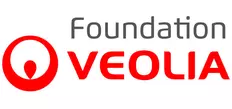On January 30 and 31, experts in water and sanitation in humanitarian contexts met at the invitation of the Partenariat Français pour l'Eau and the Veolia Foundation. Feedback, demonstration workshops, latest innovations...
At the end of January, Seine-Port, in the Seine-et-Marne region of France, hosted the third edition of the Ateliers WASH de l'humanitaire. Over the course of two days, some sixty participants specializing in access to essential services came together for a dense seminar, marked by the ambition to take operational efficiency in humanitarian situations one step further.
The focus was on fecal sludge management, with a demonstrator deployed on site - the Saniforce - and a report on operations underway in Uganda with the Ugandan Red Cross. The Reutbox, a solution for treating wastewater for reuse, notably in agricultural irrigation, was also presented on campus.
A round-table discussion focused on desalination, with accounts of experiments carried out in Yemen and Gaza. Ongoing and past projects in Mayotte and Ukraine were also reported on by people present in the field.
In the field of access to water, the network optimization missions carried out for the United Nations High Commissioner for Refugees (UNHCR) in Chad, and soon in Malawi, were explained by those involved.
Prospects were opened up for improving practices through better management and capitalization of field data.
Another topic of interest to humanitarian workers was waste management, which was the focus of an audit carried out by Médecins Sans Frontières in the Democratic Republic of Congo (DRC) and Rwanda last autumn. The question of the different sources of energy likely to be used in humanitarian responses was the subject of a workshop. Here again, cross-fertilization of skills and expertise can help us devise solutions.
Experts from all horizons
This biennial event, organized by the Partenariat Français pour l'Eau (French Water Partnership) and the Veolia Foundation, brought together representatives from NGOs (Médecins Sans Frontières, the French Red Cross, Solidarités International, Medair, Action contre la Faim, Triangle Génération Humanitaire, the International Committee of the Red Cross... ), public bodies such as the Agence de l'eau Rhône Méditerranée Corse, the Protection civile, the pS-Eau network, the URD think-tank, the Bioforce training institute, UN agencies (UNHCR, IOM) and experts from Veolia entities (Epur, Franciliane, Recyclage et Valorisation des déchets, Seureca, Sidem).








